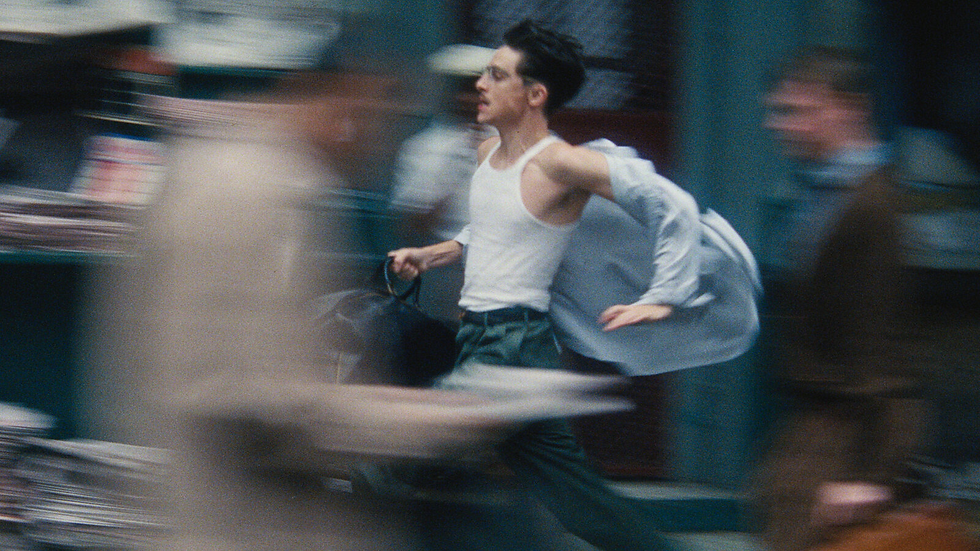"Sound of Falling" - A Gutting Escapade Through Memory and Loss
- Eric Hardman

- Sep 5, 2025
- 3 min read
Not too long ago Simon Pegg had a lovely sound bite during his visit to the Criterion Closet. He recalls his experience showing his daughter Blue Velvet for the first time, and how happy he felt to watch her hate it. He goes on to explain that often being made uncomfortable by a piece of art is the exact purpose of it. Oftentimes it's those films that stand the test of time the most, so by that indication, Sound of Falling is going to be a film that we’re going to be discussing for a very long time.

The film takes place in several loosely connected vignettes over the course of a century on the same plot of German farmland. We spend 149 minutes following the families, and specifically the women that live there as they experience collective losses of individuality and identity. These women are almost completely independent from one another, but are loosely connected by a deep-seeded, yet unidentifiable aura of fate and gutting trauma.
In the interest of full disclosure, today’s press screening at the Scotiabank Theatre in Toronto had the most walkouts I’ve ever experienced at a screening, bar none. This seemed to be far from a general crowdpleaser, and will likely be widely divisive, but it put me in a pretty constant flow state of both desperately wanting the credits to roll, and being so enraptured by the whole thing that you couldn’t pay me any amount to shift my gaze.
This film is eerily soft, and intimate. Its narrative is calculatingly jumbled, often confusing, and designed to recreate the feeling of struggling to remember something you’d rather forget. The camera often switches between long, often quickly moving, wide tracking shots, and tight, narrowly focused mediums with objects often being placed in the center of the frame to further block the field of view. These transitions are seamless, innovative, and borderline mania inducing.
The sound design and overall mix is perhaps the best of the year. The non-diegetic motifs are seamlessly incorporated with the visual ones, and each time you start to feel one re-emerging, your heart drops to your stomach. There was one callback in the final minutes that quite literally knocked the wind right out of my chest. Strangely too, but more than welcome, there was a sequence involving a young girl and a stream that was reminiscent of one of the most haunting moments of Spielberg’s War of the Worlds.

I could see this being criticized upon release for being “just another” art-house film about trauma, and the loss of women’s individuality. But I have been internally begging for a film to tackle these ideas in the way this film does for a very long time. In a perfect mix of Klimov and Tarkovsky, Sound of Falling does the near impossible in accurately visualizing why cycles like this are so difficult to break. At the heart of the women in this film is deep seeded, if often barely visible jealousy for one another, and favoritism from the men being the driving factor. The repression of self identity that comes with that is something that the brain naturally tries to store away somewhere very difficult to re-actualize once it’s stored. As a result, every time a cycle begins again, we begin coping before we even have the opportunity to try to break it.
There are certainly hints throughout the film that there may be a supernatural element connecting these people together, but it is far from thoroughly explored. I personally prefer the more haunting idea of it simply just being the way that we’ve taught ourselves to operate with each other. We can no longer say that “it was a different time” when attempting to excuse something, because the closer you look, the more you see how little the times actually have changed, if at all.
In all honesty, I don’t know how much more of this film I would have been willing and able to sit through. It is the most uncomfortable I’ve felt watching a film this year, but to reiterate, that is entirely by design. Many will likely hate it, which I completely understand, but I found it utterly fascinating.



